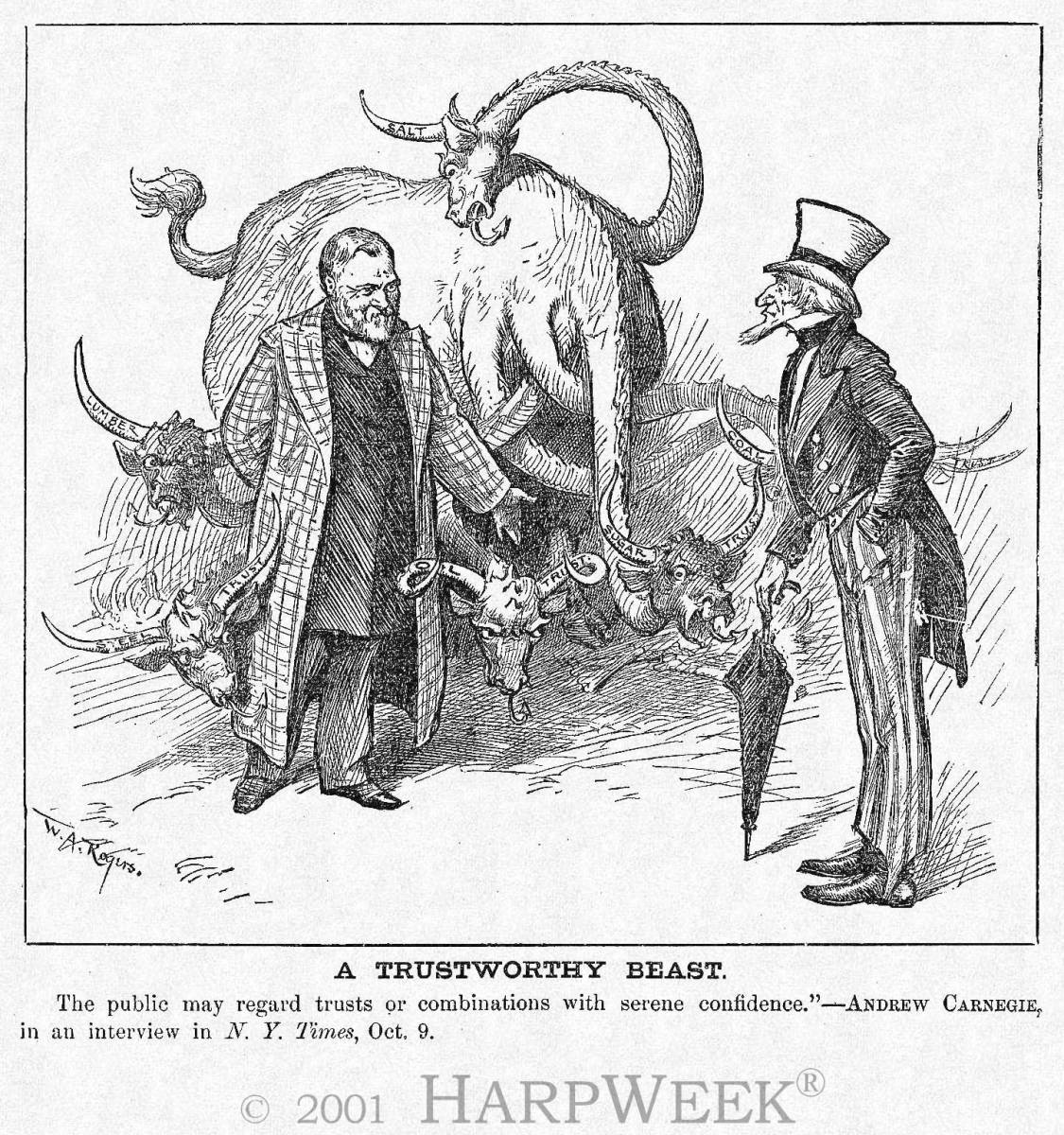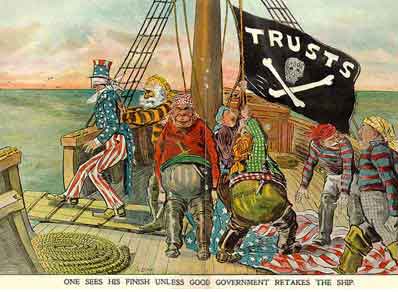Greetings History Minions! We will start out with some Semester One review!
Your Semester Exam will consist of two FRQ's and a multiple choice section, so this is a good way to get familiar with the class blog.
Each person should add notes to TWO topics until all the topics have been THOROUGHLY answered and explained. Be sure to sign your name after your answer. :)
Happy Blogging!
........................
1) “The God that holds you over the pit of hell, much as
one holds a spider, or some loathsome insect over the fire, abhors you, and is
dreadfully provoked; his wrath towards you burns like fire; he looks upon you
as worthy of nothing else, but to be cast into the fire; . . . and yet it is
nothing but his hand that holds you from falling into the fire every moment.”
Explain this quote. Where does it come from, and what is typical of the era it comes from? What ideas are typical of this kind of writing?
2) The term triangular trade describes…Why is it
important?
3) The immediate issue in dispute in
Bacon’s Rebellion was…
4) Why did the Puritans establish the Massachusetts Bay Colony? What were their goals?
5) In the
seventeenth century, the Chesapeake Bay settlement expanded its territorial
holding more quickly than did the Massachusetts Bay settlement. Why?
6) Who
was Roger Williams and what did he believe?
7) What
was the colonial era like? What are its
characteristics? What was it like for colonial
families in mid-eighteenth century America?
8) What
was the purpose of slave codes?
9) What
happened with the John Peter Zenger Trial in 1735, and why is it important?
10) What
was the headright system in the Virginia colony, and why was it use? What was the impact/effect of this system?
11) What
is mercantilism and how did it affect the relationship the colonies had with
Great Britain?
12) What was the
Battle of Saratoga, and why was it significant?
13) What were Townshend Acts, and how
did American colonies react? What did they believe about this form of taxation?
14) Why were the Battles
of Lexington and Concord were significant?
15) How did the French and Indian War change
American attitudes toward Great Britain? What were the effects of the war?
16) What were the Sugar Act and the
Townshend Act? How were they different
from the previously passed Navigation Acts?
17) What was the Declaration of
Independence and what did it do?
18) What is the significance of the Battle of Yorktown? Why/how did we win the American Revolution?
19) Explain this quote: “All men are created equal… [and] they are
endowed by their Creator with certain unalienable rights… among these are life,
liberty, and the pursuit of happiness; that to secure these, governments are
instituted among men, deriving their just consent of the governed; that
whenever any form of government become destructive of these ends, it is the
right of the people to alter or abolish it…”
What is the connection to the Enlightenment and to John Locke?
20) What was the Proclamation Line of 1763?
What was it supposed to do?
21) What is meant by “virtual
representation” as it was argued during the eighteenth century?
22) What were the Committees of
Correspondence? What did they do?
23) What did the 1783 Treaty of Paris do?
24) How did the Boston Massacre serve to
rally American opposition to British policy?
25) Why is the Stamp Act Congress of 1765
was historically significant?
26) How could the religious revival known
as the Great Awakening also have political ramifications on
colonial society?
27) Why did the Sugar Act of 1764
represent a major shift in British policy toward the colonies? What was the big deal?
28) Do you know strengths and weaknesses
of the Americans and British during the Revolutionary War?
29) Who were the Loyalists, and what did
they believe? Who were the patriots, and
what did they believe?
30) What were the Articles of
Confederation? What were the strengths
and weaknesses of this government?
31) What was the significance of Shays’ Rebellion? What happened as a result?
32) What is the significance of Marbury v. Madison?
33) What is the Louisiana Purchase and
why was an important factor in the development of U.S. trade?
34) What was Henry Clay’s American System? What was it supposed to do, and what disputes
resulted?
35) What was the Judiciary Act of 1789?
36) Why was the War of 1812 is considered a turning point in
U.S. history?
37) What was the Missouri Compromise, and what did it do?
38) What is the Bill of Rights? What does it do? How is it connected to the debate over
ratification of the U.S. Constitution?
39) What was the 1828 “Tariff of Abominations”? Why did the South strongly oppose it? What did the South really fear the tariff
would do to states power and slavery?
40) What was the Indian Removal Act of
1830? Why did President Andrew Jackson
support it?
41) What were the causes and effects of
the Texas Revolution? How did it push us
closer to the Civil War?
42) What was the doctrine of
nullification? What region of the U.S.
supported the idea and why?
43) What was the Monroe Doctrine? Why was it issued?
44) Why was the Election of 1800 considered
a “revolution”?
45) What was the XYZ Affair? Why was it
important?
46) What was the
Compromise of 1877? What were its results?
47) Why
did Anti-Federalists oppose ratification of the Constitution? What did they
fear?
48) Who was John Marshall and why
is he so significant in U.S. history?
How did his work impact the federal government?
49) What was the Whiskey Rebellion,
and how did President Washington respond?
What message did this send the country?
50) What was the Dred Scott decision? What did the
Supreme Court rule, and how was this a step toward the Civil War?
51) What was the significance of Harriet
Beecher Stowe’s Uncle Tom’s Cabin?
52) What is meant by “Manifest
Destiny”?
53) What did Southerners mean by “popular sovereignty”? What did this idea allow states to do?
54) What was the Compromise of 1850? Can you list all the
parts? What aspect was most controversial?
55) What was the Kansas-Nebraska
Act of 1854? Why did it further inflame political passions?
56) What was the Wilmot Proviso?
What did it support?
57) What were the effects of the
Mexican War? How did it help push us
closer to the Civil War?
58) What is Transcendentalism? What ideas did writers such as Emerson,
Thoreau, and Fuller stress?
59) Who was Dorothea Dix? What is her significance in U.S. history?
60) Who was Horace Mann? What was
his significance in U.S. history?
61) What do you know about the Lowell
System? What made it acceptable for women to work there? Could a woman become financially independent
working at a factory??
62) What was the Church of Jesus
Christ of Latter Day Saints (Mormons)? How did they contribute to U.S.
history? How did they help develop the
West?
63) What was meant by the Cult of
True Womanhood? Describe middle class views about women during the mid-19th
century.
64) Why is Eli Whitney (and his 2
inventions) so significant in U.S. history?
What happened as a result?
65) Explain the slogan “Fifty-four
forty or fight”. What was the issue? The
effect?
66) Who was William Lloyd Garrison,
and why was his publication The Liberator,
significant?
67) What changes occurred as a result
of westward migration c 1848-1849?
68) What was Lincoln’s Ten Percent Plan?
What was it supposed to do?
69) What was Andrew Johnson’s plan for
Reconstruction? Could you list its parts?
70) What was the “Freeport Doctrine”? What Stephen A. Douglas
state he believed?
71) What was the Wade-Davis Bill? What did it do?
72) How or why did Lincoln
win the 1860 presidential election?
73) What was the sharecropping
system? What effects did it have in the South following the Reconstruction?
74) What battle is considered the
“turning point” of the Civil War and the last chance at Confederate military
victory?
75) Why was President Andrew
Johnson impeached? What did it have to do with the Tenure of Office Act?
76) Why did
President Lincoln issue the Emancipation Proclamation—what was his
purpose? Did it really “set all the
slaves free”?
77) When the Civil War started, what
did President Abraham Lincoln say was the purpose of the war?
78) Why was the election of 1860 a “big
deal” to Southern slave owners? What did
they fear, and why?
79) What were the results of the
Compromise of 1877? What did it end?
What were the effects?

 vs.
vs. 

